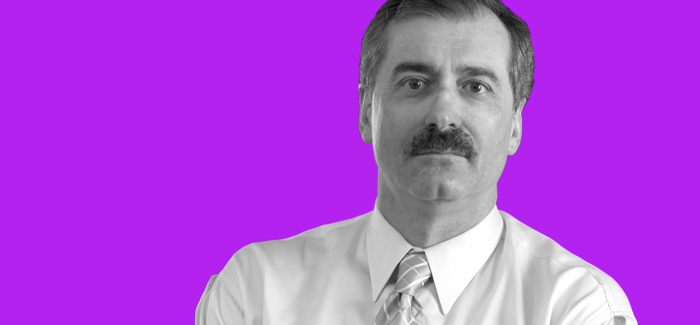
(Photo courtesy Rocky Kolb)
Astrophysicist Rocky Kolb takes over a Physical Sciences Division built on a strong foundation.
Rocky Kolb never envisioned becoming a dean, but as he prepared to take over leadership of the Physical Sciences Division from Robert Fefferman on July 1, he could see the appeal. “The table has been set, there’s been a lot of work in the past decade by Fefferman and the administration, and I think I can”—Kolb paused, turning a serious assessment into a setup for a self-deprecating punch line—“not do anything and just profit.”
Kolb, the Arthur Holly Compton distinguished service professor of astronomy and astrophysics, wasn’t kidding about the accomplishments of the past ten years, only about his challenges—he favors the optimistic term “opportunities”—as dean. He gestured toward the William Eckhardt Research Center, still a construction site visible from the astronomy and astrophysics department’s temporary trailer, as an example of the investment in and potential for physical sciences at the University.
In an interview with the Magazine, adapted below, Kolb discussed his vision for the division.
Macromanagement
A dean is sort of like a doctor in the sense that your number one thing is, do no harm. It’s a mistake to reach into departments and micromanage doing this or that. But there are some resources that you could help foster and initiate interdisciplinary and interdivisional programs. The University is more than just the sum of its divisions.
Facilitating facilities
For the past 30 years, the University has not kept up—until the past five to ten years—in building an infrastructure. The laboratories needed for physical sciences have become more complicated and elaborate than they were when buildings that we currently inhabit were built. It’s a challenge to keep our facilities updated so we can attract the best faculty and the best students and the best postdocs and the best researchers.
Eckhardt’s connections
Before this building we’ve had single departments, like astronomy and astrophysics, spread out over five buildings on campus. This will give us a base where we can all see each other and collaborate. It also puts us in close proximity with other units and other departments, like the Enrico Fermi Institute, the Kavli Institute for Cosmological Physics, and the Institute for Molecular Engineering. Being colocated with these other units will lead to great things. Exactly what they’ll lead to, I don’t know. We have to make a fertile environment, confident that something will grow.
Unforeseen future
I’m a particle cosmologist, the intersection of particle physics and cosmology. I’ve been working in that field for 30 years, but it wasn’t a field that existed when I was in graduate school. I’m sure there are graduate students in the University today who are going to work in fields, or in subdisciplines, that do not exist now. The University of Chicago has a tradition in the physical sciences of starting new fields, starting new ideas, starting new areas, and we want to continue that.
Still in the dark
My scientific career right now is focused on answering the question, what is the universe made of? And it seems that 95 percent of the universe is dark—dark matter or dark energy that we don’t understand. We have some ideas, but we don’t understand them. I can’t look back with pride saying, well, we can have a parade, declare victory, we understand everything about cosmology, when 95 percent of the mass and energy in the universe is unknown to us.
Inquiring minds
There is an increasing interest among our undergraduates who are not science majors in taking science courses. They’re increasingly curious about the physical world, and we want to convey to the undergraduates who are not science majors some of the beauty and wonder of the physical world so they can get some idea why we devote our lives to answering these questions.
Political science
The techniques and approaches of the physical sciences are playing a larger role in attacking some of the issues that face society. There are many issues that people face today—climate change, energy, nuclear proliferation—that have a technical background. Politics cannot change science. Unless you get the science right, then the policy can’t be right.
